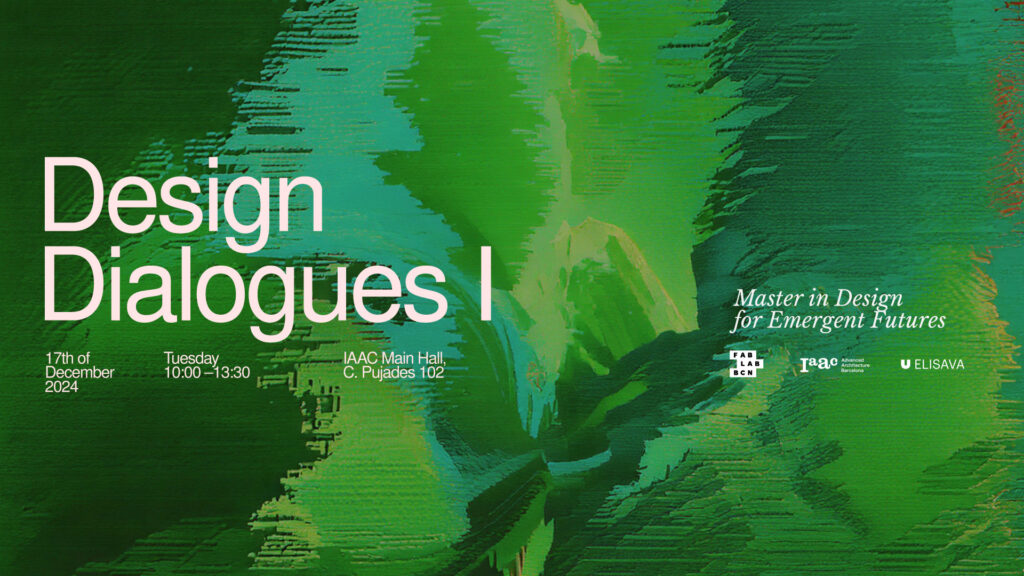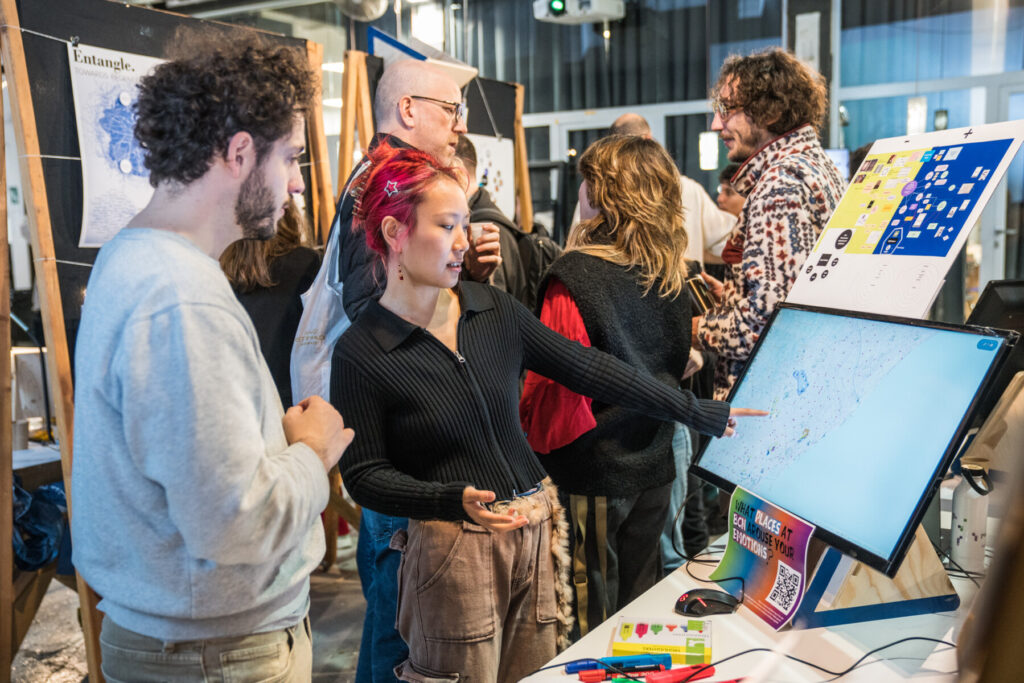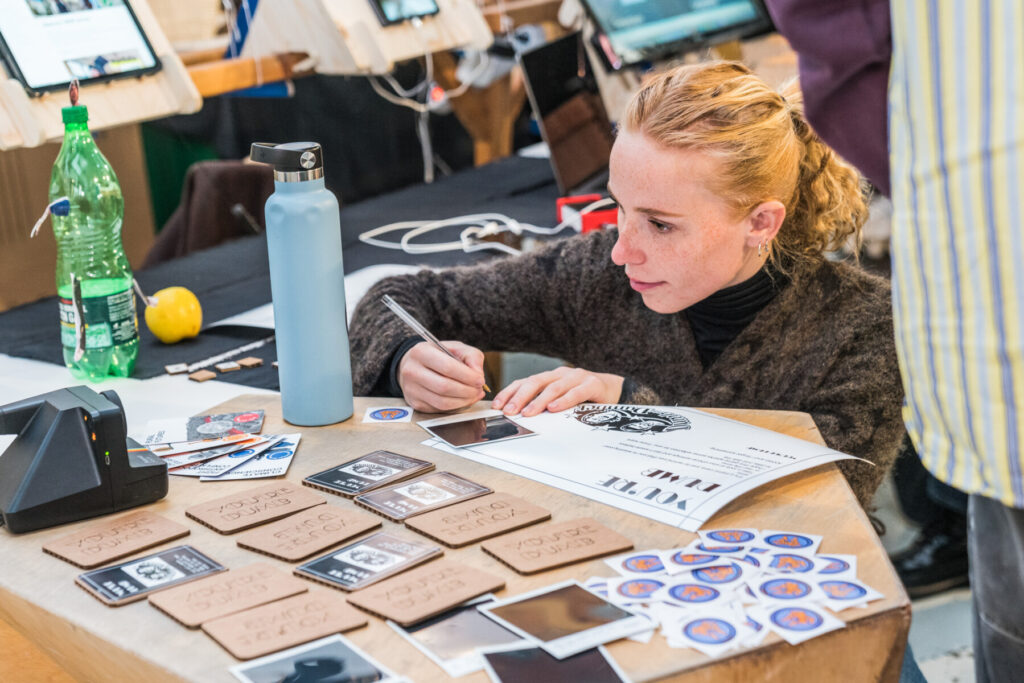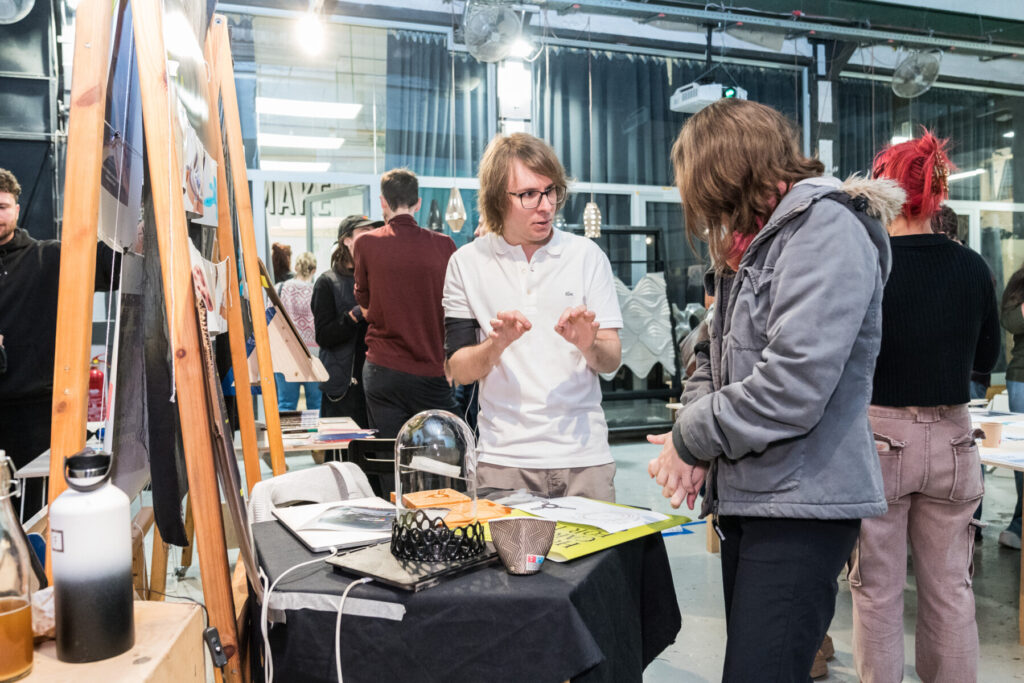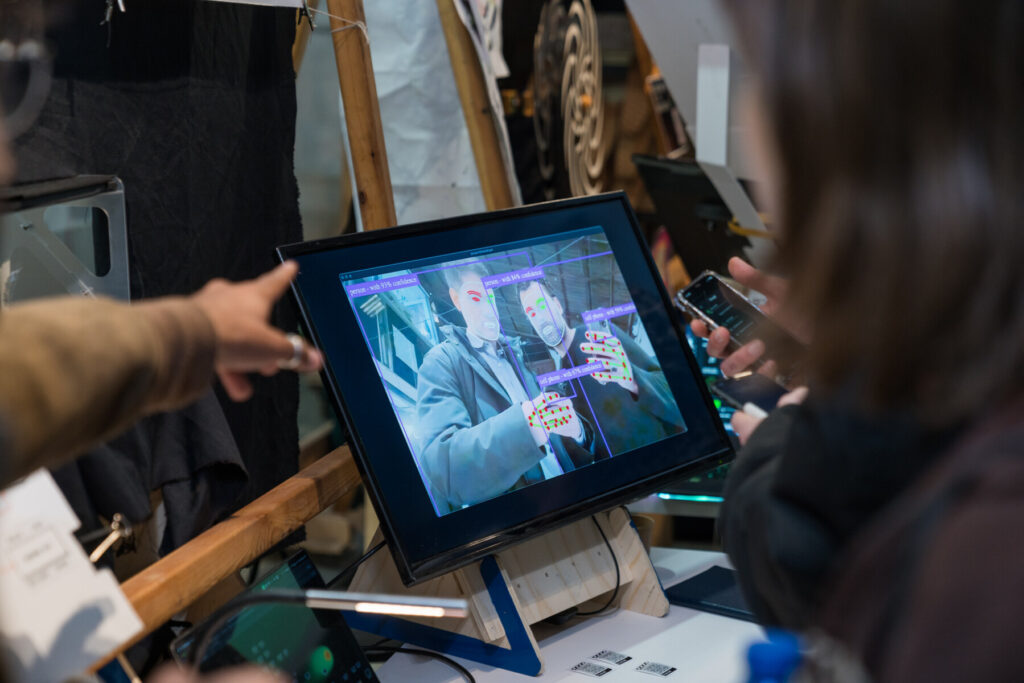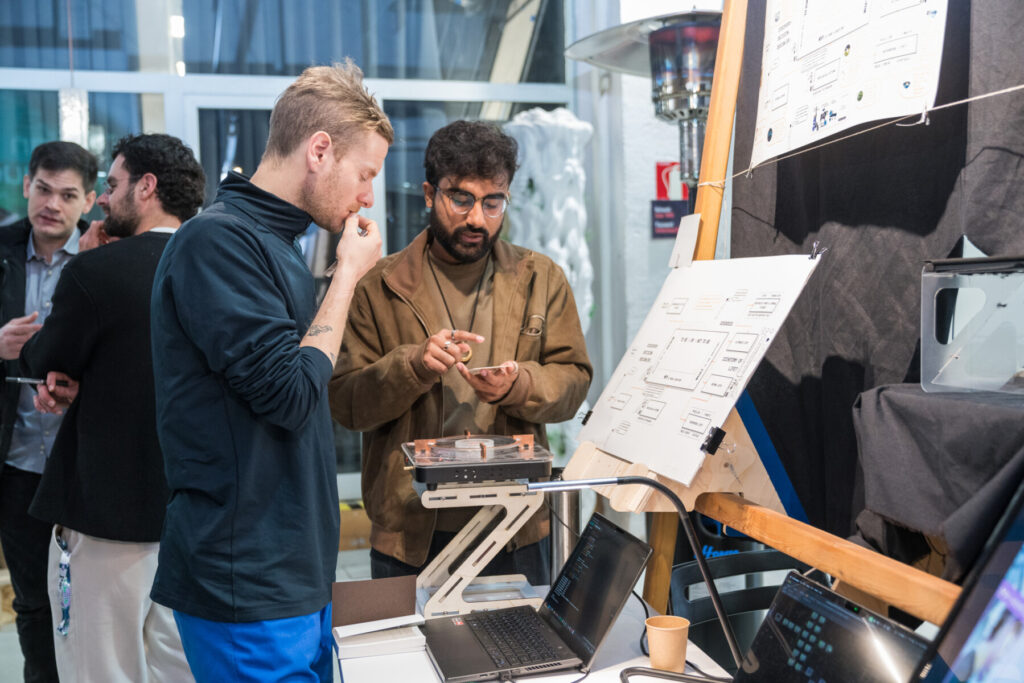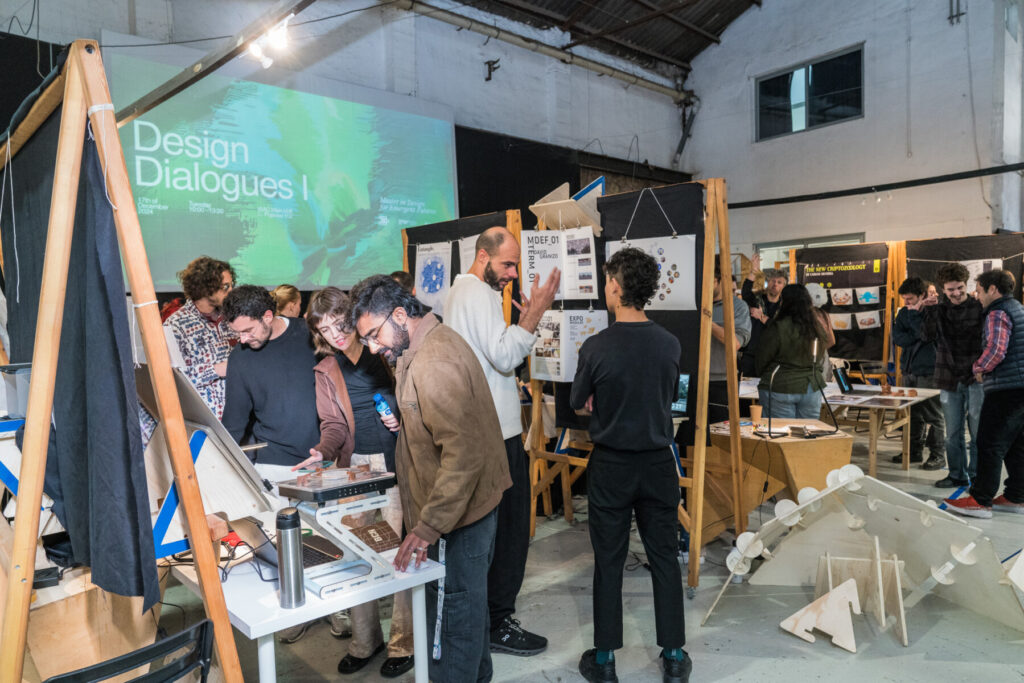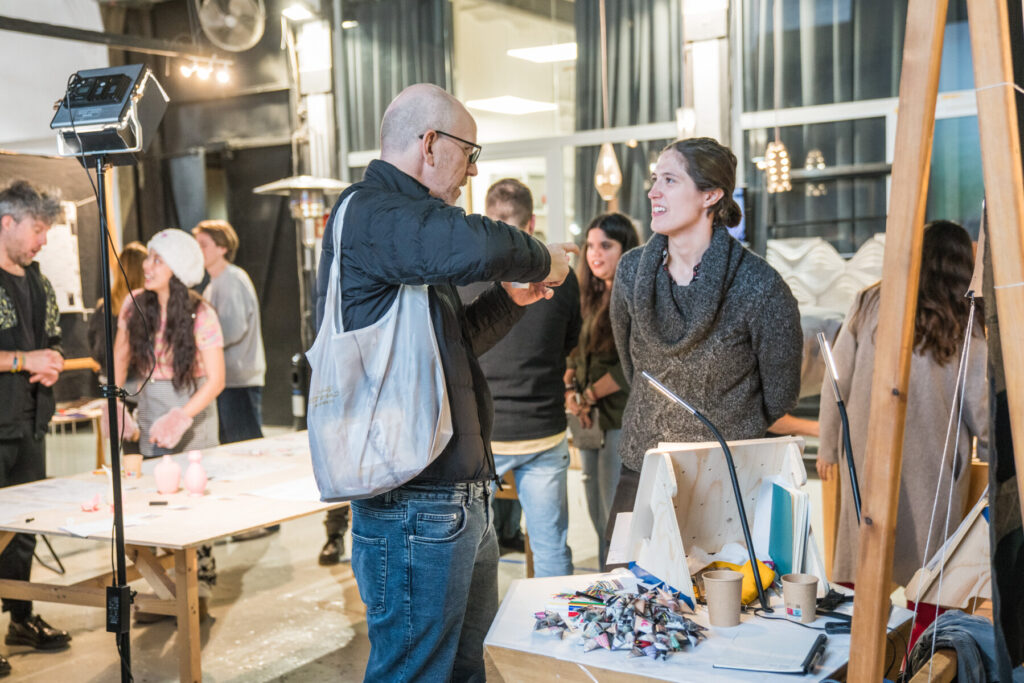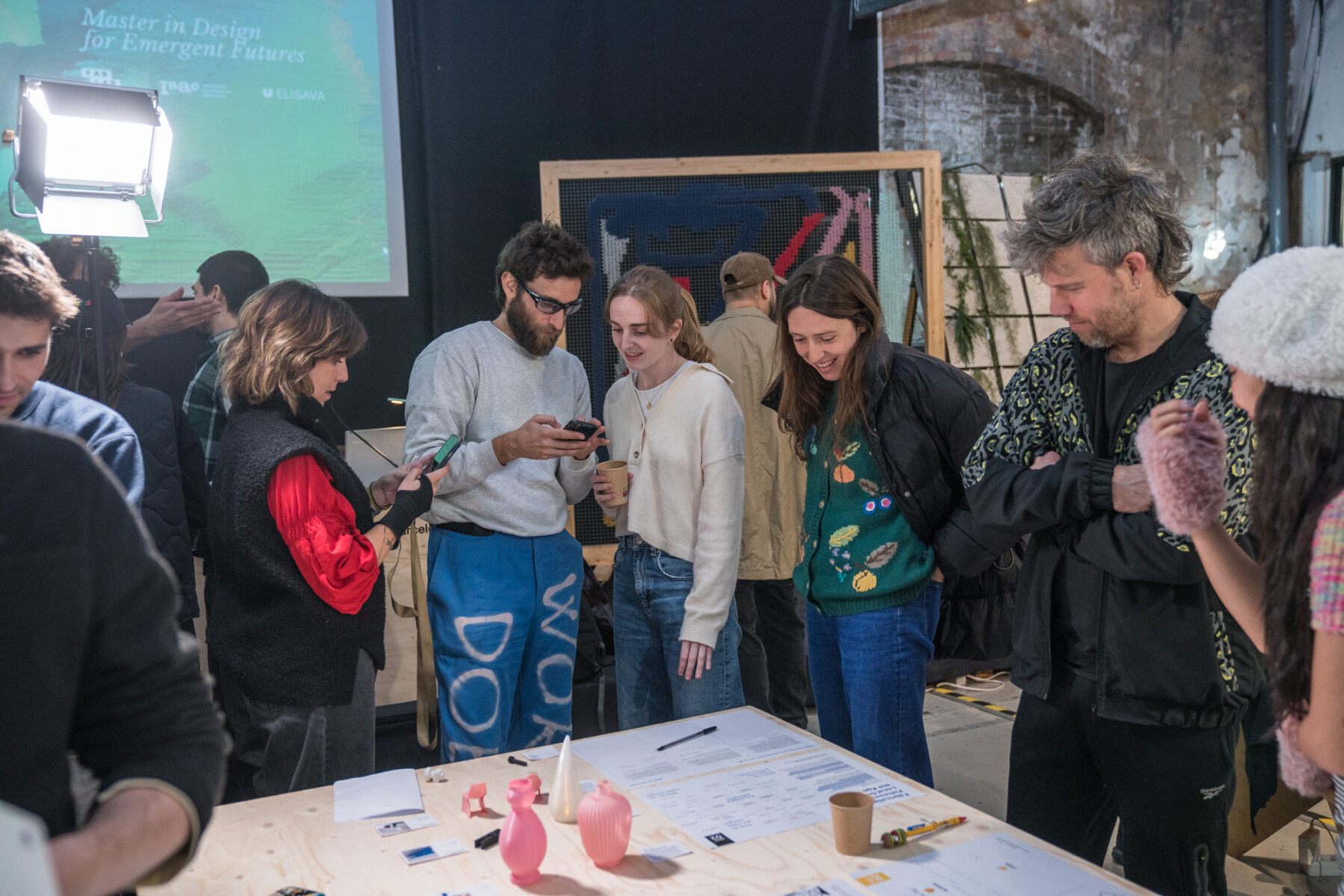
Designing in Uncertainty: MDEF Design Dialogues I as a Playground for the Future
At the first MDEF Design of the year, students transformed the IAAC Main Hall into a living laboratory of emergent futures, speculative experiments, and radical prototyping.
Introduction – Setting the Scene
It’s a crisp December morning in Barcelona, and inside IAAC’s Main Hall, a quiet hum of anticipation fills the air. The tables are set, the prototypes carefully positioned, the last-minute notes scribbled down.
The MDEF Design Dialogues I is about to begin.
A cross between a design review, a festival, and a live laboratory, the event is the first of two annual showcases where students of the Master in Design for Emergent Futures (MDEF) present their early interventions—projects that challenge, reimagine, and hack the present in pursuit of better futures.
This isn’t your usual design presentation. No PowerPoint slides, no long monologues. Instead, an open, fair-like setup, where students exhibit their ideas at individual booths, inviting guests to step into their worlds. Speculative scenarios, material explorations, machine hacks, and community-driven experiments—each project offers a different window into the future.
Design Dialogues are open to the public, making them a unique opportunity for anyone to engage with the projects, exchange ideas, and contribute to an ongoing discussion about design’s role in shaping emergent futures. If this sounds like something for you, we look forward to welcoming you to the upcoming Design Dialogues II in March.
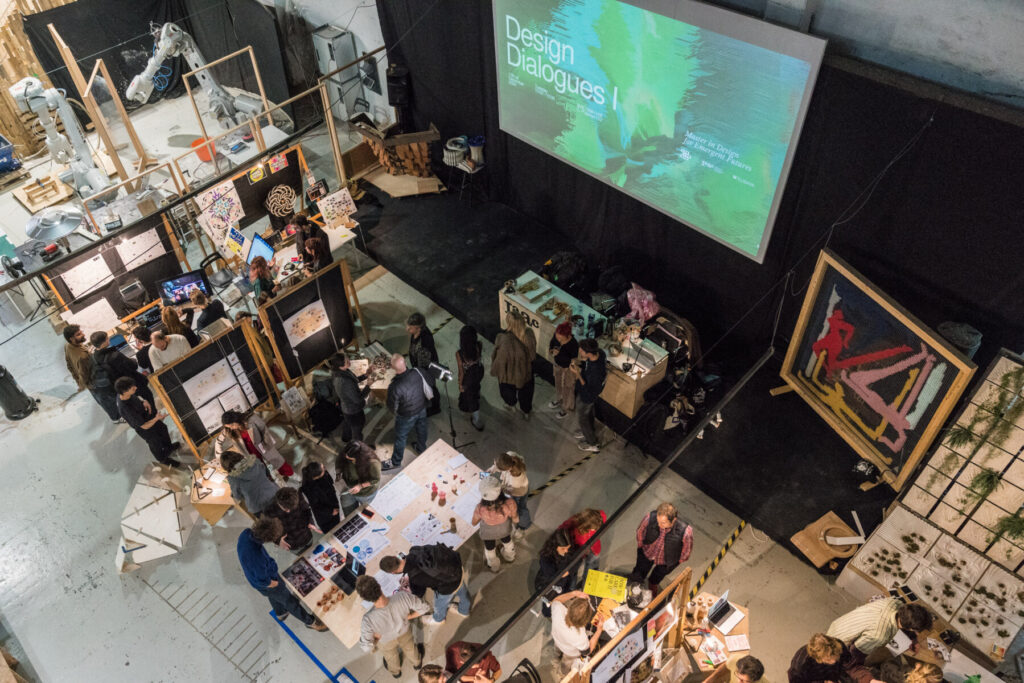
The Guests – A Dialogue Across Disciplines
The Design Dialogues thrive on conversation—not just between students and their peers but between disciplines, industries, and schools of thought. This year’s invited guests brought expertise spanning critical design, architecture, urban studies, open-source technology, and social innovation.
Some highlights from our guest panel:
🔸 Ethel Baraona Pohl – Critic, writer, and curator, co-founder of dpr-barcelona, Ethel connects architecture, political theory, and publishing as acts of resistance and care.
🔸 Rubén Pater – Graphic designer and author, Ruben blends journalism, activism, and design in his practice, Untold Stories, advocating for equality and degrowth.
🔸 Tim Cowlishaw – Interaction designer and creative technologist, Tim explores digital ecologies and code-driven storytelling.
🔸 Toni Llàcer – A multidisciplinary sociologist and researcher, Toni bridges philosophy, economics, and social science to tackle complexity with depth.
🔸 Manuela Valtchanova – Architect and researcher, Manuela’s work intertwines space, time, and narrative, focusing on ephemeral architecture and transformative urbanism.
🔸 Matias Varderau – Director of Lichen, Matias drives public-private-community collaboration for inclusive, citizen-centered social innovation.
🔸 Joan Vellvé – Designer and experimenter, Joan navigates critical design through projects like Plug-in-City, blending sustainability and innovation across continents.
Guided by MDEF faculty—Saúl Baeza, Guillem Camprodon, Chiara Dall’Olio, Jana Tothill, Roger Guilemany, Christian Ernst, Pietro Rustici, Jessica Guy, Julia Betolaso, Sally Bourdon, Santi Fuentemilla, Luciana Asinari, Adai Suriñach—and the Fab Lab Barcelona team, the dialogues unfolded as an open-ended, iterative conversation—a chance for students to test, refine, and challenge their design directions.
The Work – A Glimpse into Emergent Futures
Each project at Design Dialogues I is an intervention—a small but intentional disruption that asks: What if? What if we could hack supply chains? What if machines were designed for repair, not obsolescence? What if we built AI that helped us unlearn?
Some of the themes explored in this edition:
✨ Regenerative Materials – Prototyping with fungi, bioplastics, clay, and waste.
✨ Tech for Repair, Not Replacement – Rethinking product life cycles through modularity, local manufacturing, and longtermism.
✨ Future of Food – Unpacking food systems and how to rethink them in contemporary global contexts.
✨ Human sensing – Exploring our environments through bodies-technologies entanglements.
✨ Democratising Design – Situating designers within socio-technical systems embodying alternative approaches, exploring low-tech alternatives, heritage, and collective innovation.
✨ Bio-design – Researching bio-design applications in health and HCI.
Throughout the day, visitors and guests engaged in hands-on demonstrations, provocations, and critical discussions—sometimes challenging assumptions, sometimes reinforcing insights, always adding layers of complexity.
The Takeaway – Designing Beyond the Classroom
If there’s one thing the MDEF Design Dialogues prove, it’s that design is not a finished product, but an ongoing process.
It’s about prototyping, failing, iterating, and learning in public.
It’s about pushing the boundaries of what design can do.
And it’s about doing this together, as a network, as a community.
As the event wrapped up, the discussions continued—over coffee, in hallways, in notebooks filled with guest feedback. The projects from Design Dialogues I will evolve, mutate, and take on new forms before returning in the next edition, Design Dialogues II.
Beyond that, this year’s work will culminate in the MDEF yearly festival, hosted by the community in June—an event where ideas transform into real-world prototypes, interventions, and collaborations. For students continuing into the recently launched second year of the MDEF program, this is just the beginning. Those who choose to take this step will turn their initial explorations into fully developed projects, pushing their impact further.
One thing is certain: this is just the beginning.
